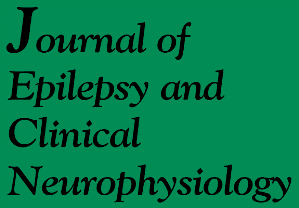PURPOSE: The aim of this study was to evaluate in patients with mesial temporal lobe epilepsy (MTLE) with hippocampal sclerosis (HS): (1) employment patterns before and three years after epilepsy surgery and their impact in Quality of Life (QOL); (2) demographic and clinical variables associated with employment. METHODS: Data from 58 patients with diagnosis of refractory MTLE with HS who had corticoamygdalo-hippocampectomy were analyzed. The subjects answered to Brazilian validated version of the Epilepsy Surgery Inventory (ESI-55) before, and three years after surgery. In a semi-structured interview, sociodemographic and clinical characteristics were obtained. Changes in employment after surgery were classified in one of the three categories: (i) improvement status: those who were unemployed, no-formal employed, students, housewives and subjects who have never worked to employed category; (ii) unchanged status: no change in occupation; this category included subjects who were employed before and after the surgery, housewives, students, and the group who remained unemployed, receiving ill-health benefits or retired after the surgical treatment; and (iii) worsened status: loss of employment. RESULTS: Employment status did not show any significant change after surgery: in 51(87.9%) it remained unchanged, in six (10.3%) it improved, and one patient (1.7%), who was employed before the surgery, retired after that. In a subgroup of 22 patients employed after surgery, ten (45.5%) were seizure-free, seven (31.8%) had only rare auras, and five (22.7%) had seizures. In the group of improvement, 12 patients (70.5%) had no-formal employment and five (29.5%) had a formal job before surgery. After three years, 14 (63.6%) of 22 subjects were formally employed. Our data suggested that the employability was strongly correlated (p<0.05) with a positive perception of health-related quality of life measured by ESI-55, before and after surgical evaluation. CONCLUSION: Our study demonstrated in a homogeneous group of MTLE with HS, a modest, but positive relationship between surgical outcome and work gain, and that QOL had strong correlation with the fact of being employed.
mesial temporal lobe epilepsy; hippocampal sclerosis; employment; quality of life; Epilepsy Surgery Inventory (ESI-55); surgery



